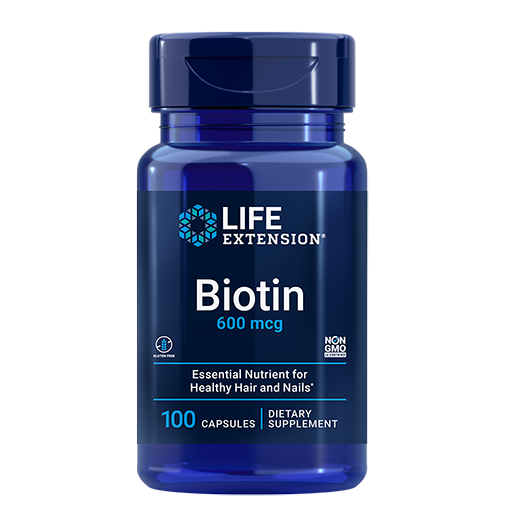Biotin
The B vitamin family includes the water-soluble vitamin biotin. These vitamins are important for vital metabolic processes, supporting healthy nervous system function and supporting adrenal function.The production of fatty acids, the metabolism of proteins and carbohydrates, and cell growth all depend on biotin. Additionally, it contributes to DNA replication.Although biotin is typically regarded as safe, there have been a few isolated reports of unfavorable side effects like skin rashes and digestive problems. It's crucial to consult your healthcare provider before taking a biotin supplement.

